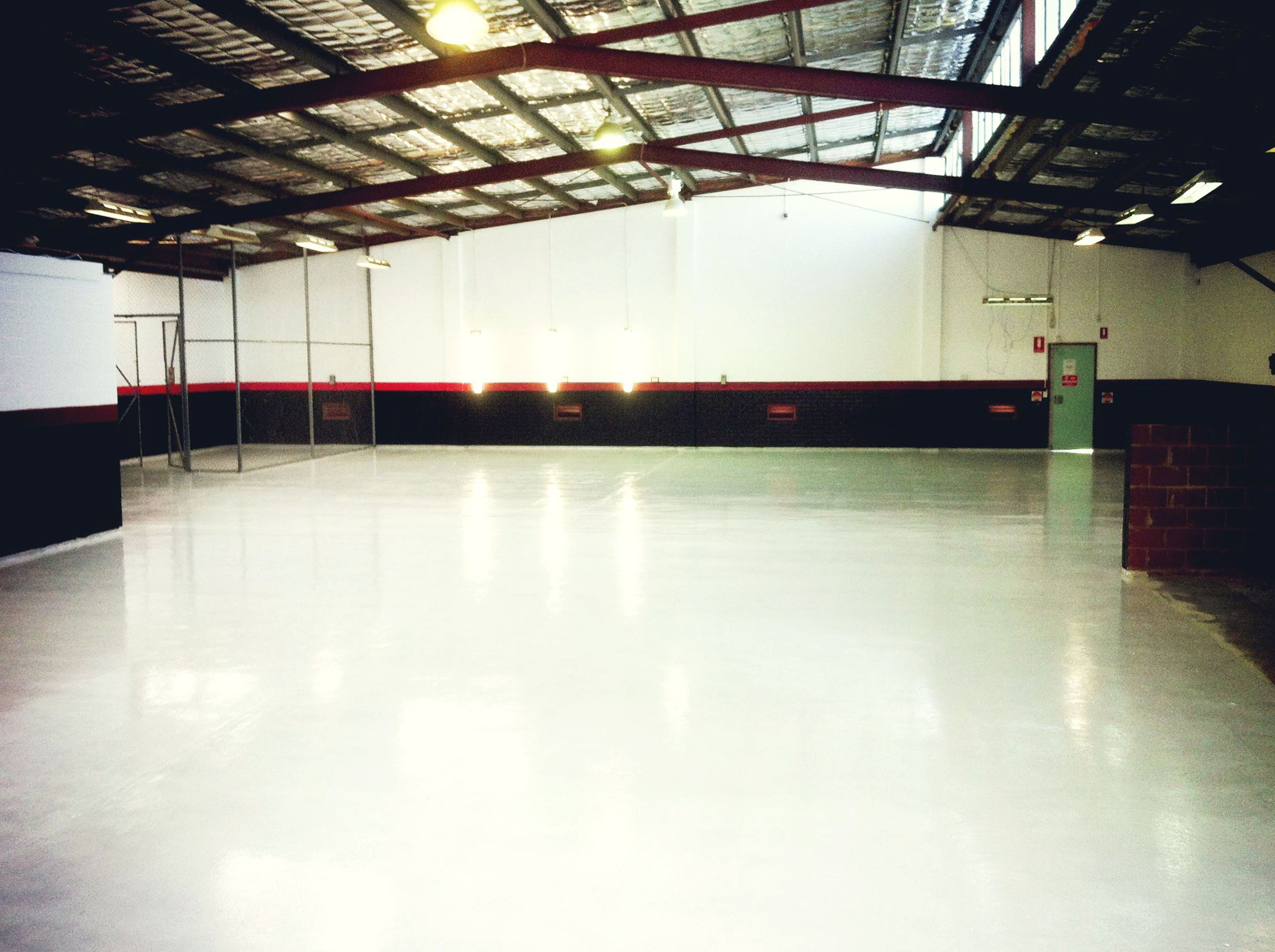Getting ready to coat your concrete floor? Do This First:
How to Test for Moisture (and Prevent Costly Flooring Failures Later)

06-14-2017
Article 3 of 5 in a series
Excess concrete moisture wreaks havoc on your floor covering – in some environments, moisture vapor seeps up through a slab. If this is an issue with your floor, it is important to understand the severity so that you can make the proper coating choice to mitigate delamination and coating failure.
The problem is, looking or feeling dry isn't enough; the concrete may not actually be dry enough. So, how do you know when concrete is dry enough to coat? Test, test, test. Thoroughly measure the moisture in your concrete.
Seems like a simple solution, right? Except a quick Internet search turns up a wide array of testing methods, each claiming to be the best.
Flooring failures are not due to how much moisture is in the concrete per se (moisture content, or MC), but how much moisture moves to the surface (moisture vapor emission rate, or MVER). Both are important indicators of the future success – or failure – of your concrete floor covering.
Here are the 3 most common effective testing methods: the calcium chloride test, hand-held moisture meter, and rapid relative humidity (RH) test.
Method #1: The calcium chloride (CaCl) test (ASTM-F-1869) places, under impermeable cover sealed to the concrete, a dish of CaCl that is weighed before and after 72-hour exposure, measuring moisture vapor in pounds per 1,000 ft². ≤3 pounds / 24 hours is acceptable to most flooring and coating manufacturers.
Benefits:
• Measures moisture emitted at the concrete surface.
• Inexpensive and widely accepted.
• Relatively easy to perform.
Limitations:
• Measures top ¾ inch of concrete slab only.
• Humidity and temperature can interfere with test results.
• Costly over time as new test kits are required for each re-test.
• 24- to 72-hours testing can delay floor installation.
Method #2: Handheld meters are a quick and easy general survey tool that uses radio signals to measure up to 6% MC in concrete flooring.
Benefits:
• Identify moisture "hot spots" that require more precise testing.
• Non-invasive and non-destructive.
• Provides instant results.
Limitations:
• Penetrates only about one inch into the slab.
• May interact with metal in the concrete, misreading moisture conditions.
Method #3: The rapid relative humidity (RH) test (ASTM-F-2170) quantifies MC in percent RH through in-situ, metered probes drilled 40% deep into the concrete slab. The ASTM standard limits RH to ≤75% for concrete to be coated, unless otherwise specified by the manufacturer.
Benefits:
• Measures actual moisture conditions / RH within different areas of the concrete.
• Large savings in time and labor over CaCl test, over repeated use.
• Can be used to predict potential migration of moisture toward the warmest, driest area – most important when it's the surface.
Limitations:
• Not as widely accepted or recommended by US floor covering manufacturers.
• Requires a substantial initial investment in tools and equipment.
• No exact correlation between slab RH and moisture vapor movement.
So, which is the best testing method for your project? Yes.
All three testing methods performed in conjunction with each other offers the greatest depth of data, so you have confidence in your flooring decisions. This combined methodology prevents potential moisture-related floor coating failures by covering all the bases: moisture vapor emissions (CaCl test) and where to strategically place (handheld meter) probes to measure moisture content (RH test).
Now that you've tested your concrete flooring, what next? Contact one of our experts for a comprehensive evaluation of your results. If your concrete is "too wet," we'll help troubleshoot with moisture mitigation solutions tailored to your timeline, budget and project specifications. Click here to schedule your complimentary consultation today.
Latest News
How to Maintain Your Concrete Grinder
Gain Customers and Referrals in 4 Easy Steps
Ready for the Summer Rush? 4 Ways to Prepare
6 Cold Weather Safety Tips for Installers
How to Remove Salt Stains from Concrete
Testimonials
Every time I call I get to talk to someone, and I always have an answer within 20 minutes. That's awesome.
Client: Terry C.

